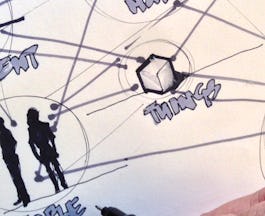Filter by
The language used throughout the course, in both instruction and assessments.
220 results for "behavioral economics"

Imperial College London
Skills you'll gain: Critical Thinking

Arizona State University
Skills you'll gain: Communication, Design and Product, Graphic Design, Research and Design, Visual Design, Creativity, Innovation, Culture, Marketing, Problem Solving

Peking University
Skills you'll gain: Leadership and Management, Communication

The University of Notre Dame
Skills you'll gain: Leadership and Management, Communication
 Status: Free
Status: FreePolitecnico di Milano
Skills you'll gain: Data Science

Imperial College London
Skills you'll gain: Big Data

IIMA - IIM Ahmedabad
 Status: Free
Status: FreeThe Hong Kong University of Science and Technology
 Status: Free
Status: FreeUniversiteit Leiden

Michigan State University
Skills you'll gain: Software Engineering, Computer Graphics, Computer Programming, Software Engineering Tools
 Status: Free
Status: FreePolitecnico di Milano

University of Michigan
Searches related to behavioral economics
In summary, here are 10 of our most popular behavioral economics courses
- Foundations of Public Health Practice: The Public Health Approach: Imperial College London
- Entender el diseño: Arizona State University
- Management Communication 管理沟通: Peking University
- Leading from Within: The University of Notre Dame
- Tools and Practices for Addressing Pandemic Challenges: Politecnico di Milano
- Introduction to Digital health: Imperial College London
- Advanced Digital Transformation (Part 3): IIMA - IIM Ahmedabad
- Chinese Politics Part 2 – China and the World: The Hong Kong University of Science and Technology
- The Importance and Power of Music in our Society: Universiteit Leiden
- Game Design and Development 1: 2D Shooter: Michigan State University










